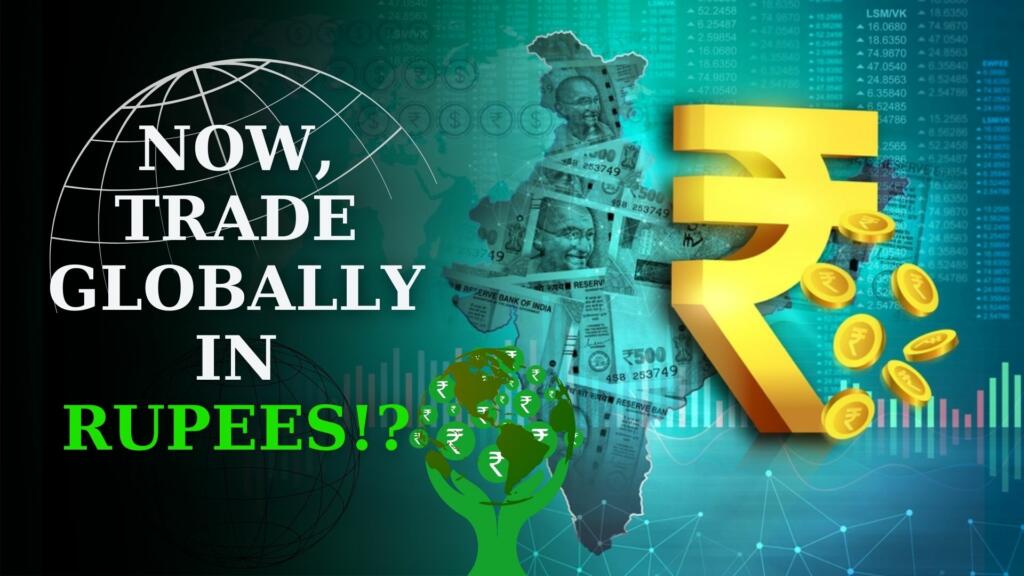In the ever-evolving landscape of global commerce, traditional currency dynamics are undergoing a significant shift. With the Indian Rupee gaining traction as a viable alternative to the dominant US dollar, countries across the world are increasingly exploring the benefits of trading in domestic currencies. Led by India’s Commerce and Industry Minister, Piyush Goyal, a wave of enthusiasm is sweeping through nations ranging from Bangladesh and Sri Lanka to Gulf countries and even Singapore. This paradigm shift has the potential to reshape the dynamics of international trade, offering a compelling alternative to conventional currency exchange mechanisms.
Emergence of Rupee Trade
As Minister Goyal emphasizes, the allure of rupee trade lies in its ability to mitigate transaction costs and streamline trade processes. Countries like Bangladesh and Sri Lanka are already in discussions with India to initiate rupee-based transactions, recognizing the inherent advantages of bypassing the need for conversion into third-party currencies. The recent milestone of India-UAE oil trade conducted in rupees underscores the growing acceptance of this approach, signaling a broader push towards local currency transactions.
Advantages of Rupee Trade
Trading in Indian rupees offers multifaceted benefits to both participating nations and global businesses. By eliminating the need for frequent currency conversions, transaction costs are significantly reduced, enhancing the efficiency of cross-border trade. Moreover, the stability of the Indian Rupee against international currencies instills confidence among trading partners, fostering a conducive environment for sustained economic collaboration. With the Reserve Bank of India’s progressive policies facilitating rupee settlement for international trade, a diverse array of countries, spanning from Singapore to Belarus, are embracing this transformative approach.
Also Read: Facts or Fiction: The Economist’s Whimsical Take on India’s Economic Divide
India’s Strategic Position
India’s pivotal role in catalyzing the adoption of rupee trade cannot be overstated. As one of the world’s fastest-growing economies and a key player in global trade, India’s embrace of domestic currency transactions sets a compelling precedent for other nations. By spearheading initiatives such as the establishment of special rupee Vostro accounts, India is laying the groundwork for a more interconnected and efficient global trade ecosystem. Furthermore, the stability and resilience demonstrated by the Indian Rupee amidst global economic fluctuations reinforce its credibility as a viable medium for international transactions.
Implications for Global Commerce
The growing momentum behind rupee trade signifies a broader recalibration of global commerce, characterized by a shift towards decentralized currency frameworks. As more countries recognize the inherent advantages of trading in local currencies, the traditional dominance of the US dollar is gradually being challenged. This not only enhances economic autonomy for participating nations but also fosters greater financial inclusivity and resilience. With India at the forefront of this transformative wave, the stage is set for a new era of cross-border trade characterized by efficiency, stability, and mutual prosperity.
In Conclusion, The surge of interest in rupee trade heralds a watershed moment in the evolution of global commerce, with India emerging as a trailblazer in promoting decentralized currency frameworks. Minister Piyush Goyal’s vision of a world where domestic currencies serve as the bedrock of international trade reflects a bold and forward-thinking approach. As more countries align themselves with this paradigm shift, the stage is set for a more inclusive, efficient, and resilient global economy, underpinned by the principles of cooperation and mutual benefit.
Also Read: Trading Sweets for Swiss Watches: India-EFTA Trade Pact
